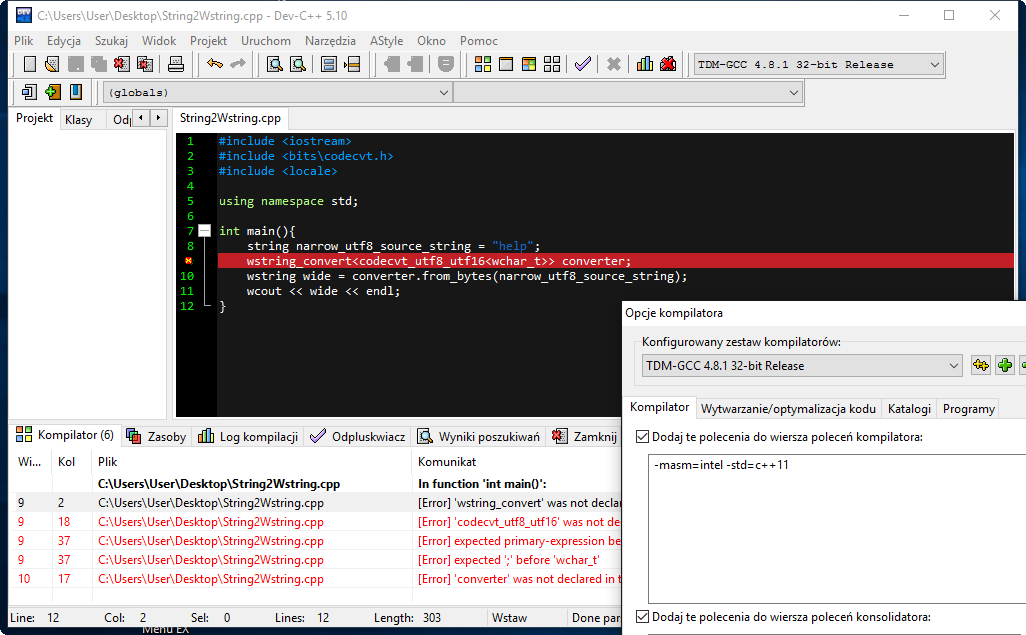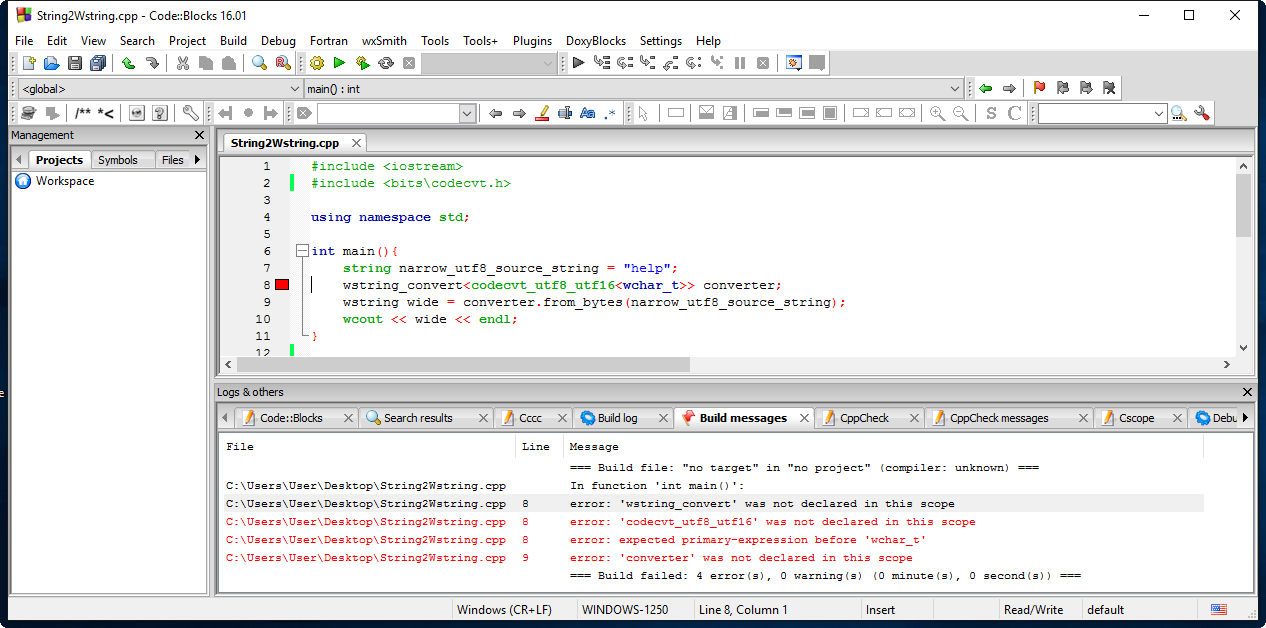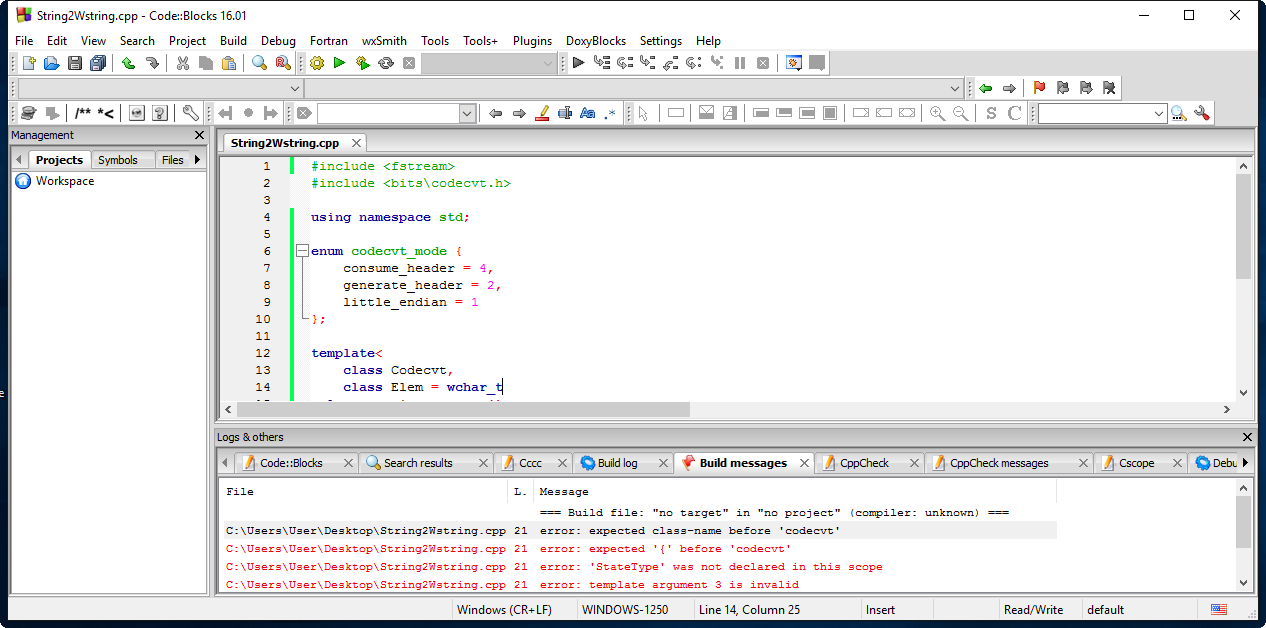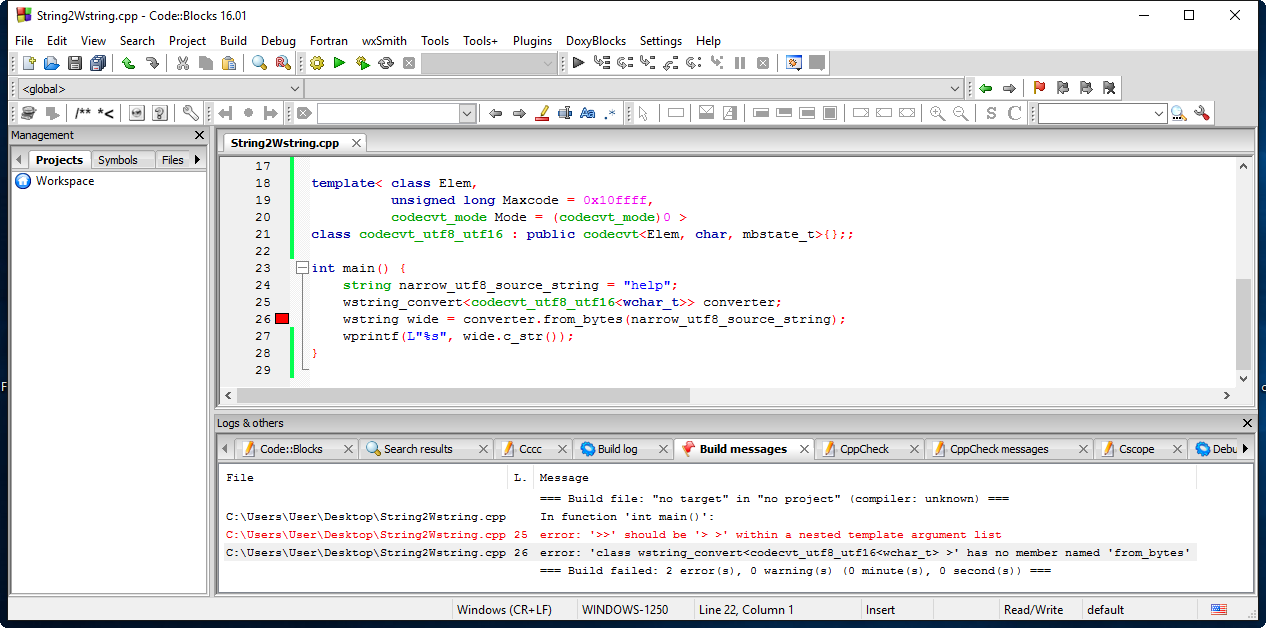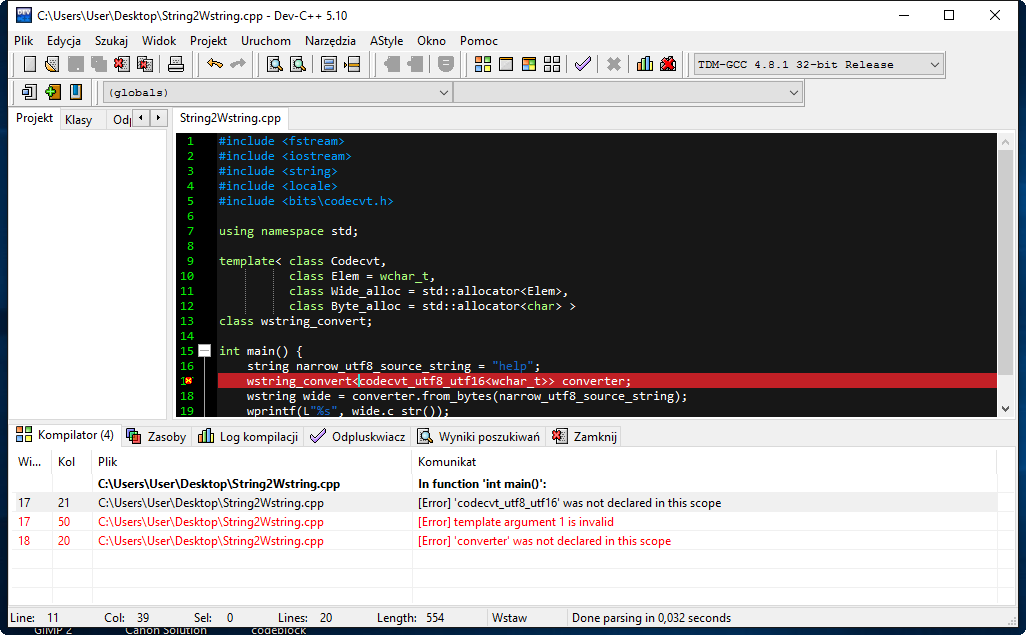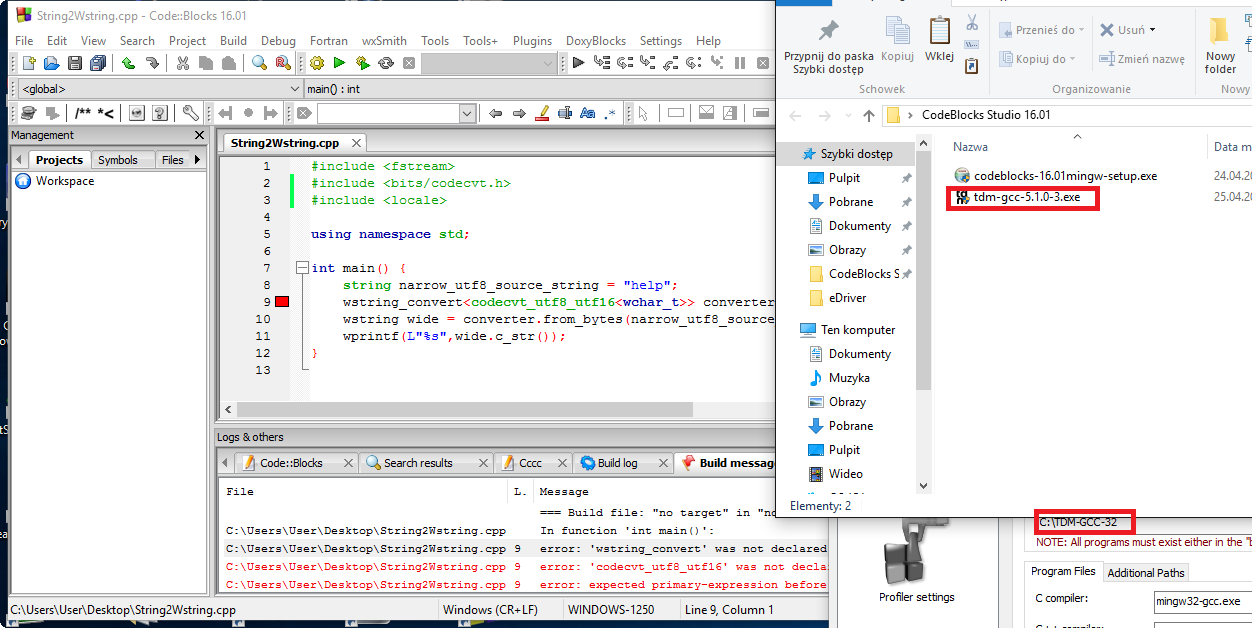Jak użyć 'wstring_convert' w Dev-C++ wiem, że to działa w Visual Studio ale wolał bym użyć go w Dev-C++
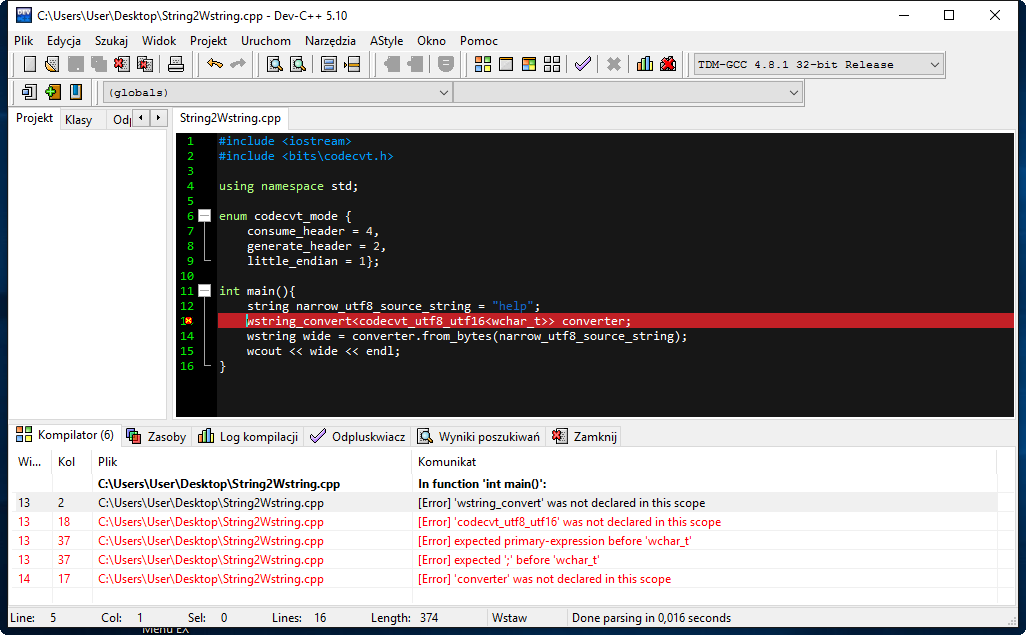
#include <iostream>
#include <bits\codecvt.h>
using namespace std;
int main(){
string narrow_utf8_source_string = "help";
wstring_convert<codecvt_utf8_utf16<wchar_t>> converter;
wstring wide = converter.from_bytes(narrow_utf8_source_string);
wcout << wide << endl;
}
